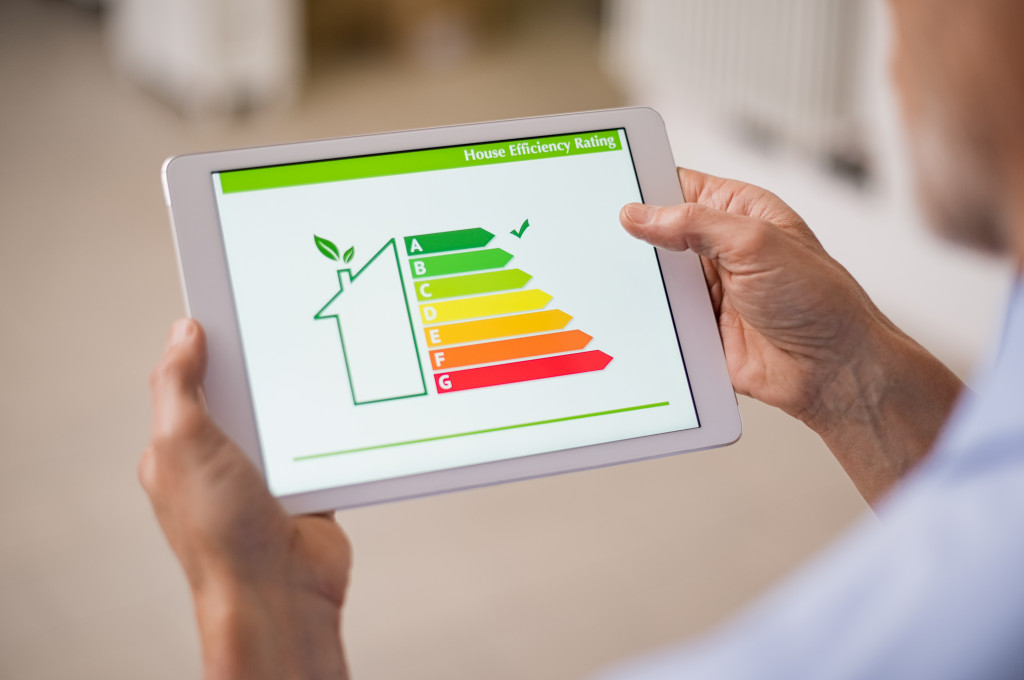- Homeowners struggle with rising electricity bills, especially in older homes without efficient features.
- Heating and cooling can make up to 50% of a home’s energy usage, and old appliances can waste energy.
- Upgrading to energy-efficient appliances, performing maintenance and repairs, and proper insulation can save money.
- Energy Star-certified appliances, TVs with LED technology, and regular cleaning can lower energy usage.
As energy costs continue to rise, homeowners are constantly looking for ways to reduce their electricity bills. This struggle is particularly acute for those living in older homes, which may not have the latest energy-efficient features. According to a U.S. Energy Information Administration report, the average residential electricity bill in the United States was $115.49 in 2020. This represents a significant increase from the $63.69 average bill in 2000, and the trend shows no signs of slowing down.
One of the biggest challenges homeowners face is the cost of heating and cooling their homes. Heating and cooling can account for up to 50% of a home’s energy usage, particularly in regions with extreme temperatures. In addition, older homes often lack proper insulation or have leaky windows, leading to energy waste and higher bills.
Another source of energy waste is the use of older appliances and electronics. Older refrigerators, for instance, can be energy hogs, using up to three times the electricity of newer models. Similarly, older TVs and computers may not be designed with energy efficiency in mind, leading to higher bills.
Fortunately, there are many steps homeowners can take to reduce their energy usage and lower their bills. Here are a few steps to consider for your efforts.
Appliance Upgrades

Outdated appliances primarily cause high electricity bills because they consume more energy than newer, energy-efficient models. As mentioned above, older refrigerators can use up to three times the electricity of newer models. In addition, older appliances often lack the energy-saving features in more recent models.
It is essential to upgrade your appliances to reduce your energy usage and lower your bills. Here are some of the best machines to consider upgrading:
Refrigerators
Upgrading to an energy-efficient refrigerator can save you a lot of money on electricity bills. The most energy-efficient refrigerators have an Energy Star label, designed to use at least 15% less energy than standard models. Look for refrigerators with a high Energy Star rating, and consider models with features like adjustable temperature controls and automatic defrost.
Washers and Dryers
Older washers and dryers can be energy hogs, using up to two times the electricity of newer models. Consider upgrading to an Energy Star-certified washer and dryer set, which can save you up to $370 over the lifetime of the appliances. Energy Star-certified models also use less water, saving you money on your water bills.
Air Conditioners
Older air conditioning units can be inefficient and costly to run. Upgrading to a newer, energy-efficient model can save you up to 20% on your cooling bills. Look for models with a high Seasonal Energy Efficiency Ratio (SEER) rating, indicating the unit’s efficiency at cooling.
Televisions
Older TVs can also use a lot of energy. Consider upgrading to a newer, energy-efficient model that uses LED technology. LED TVs use up to 50% less energy than older plasma and LCD models. In addition, consider turning off your television when you’re not using it or using a power strip to turn off all your electronics at once quickly.
Upgrading your appliances to more energy-efficient models can significantly reduce your electricity bills and help reduce your carbon footprint.
Maintenance and Repairs
Another way to reduce your energy costs is through maintenance and repairs. For instance, ensuring all windows and doors are properly sealed can help prevent drafts and ensure that the temperature remains more consistent in the home. You can also get residential glass window repair services to ensure you are not leaking indoor air.
Similarly, professionally servicing your HVAC system can keep it running efficiently and help save you money on your bills. For appliances, regular cleaning and maintenance will help them run more efficiently. Check your air filters once a month, as clogged air filters can increase energy usage. In addition, consider replacing old light bulbs with newer LED or CFL models, which use up to 75% less energy than traditional bulbs.
Proper Insulation

Proper insulation is essential for keeping your home energy-efficient. Insulation helps keep the temperature consistent, reducing air leakage and drafts from entering your home. If you live in an older home, consider insulating your attic and walls to help maintain a comfortable temperature. Additionally, ensure that exterior doors or windows are correctly sealed to reduce air leakage.
Many other home areas require insulation, such as hot water pipes and ductwork. Ensuring all spaces are properly insulated will help keep your home energy-efficient and reduce electricity bills.
Final Thoughts
Reducing your energy usage can be a difficult task, but there are many steps homeowners can take. Upgrading to more efficient appliances and ensuring proper maintenance can help you save money on electricity bills by reducing energy consumption. Additionally, improving insulation will help maintain a comfortable temperature in your home and reduce air leakage. These simple steps can go a long way towards reducing energy costs and saving you money.
